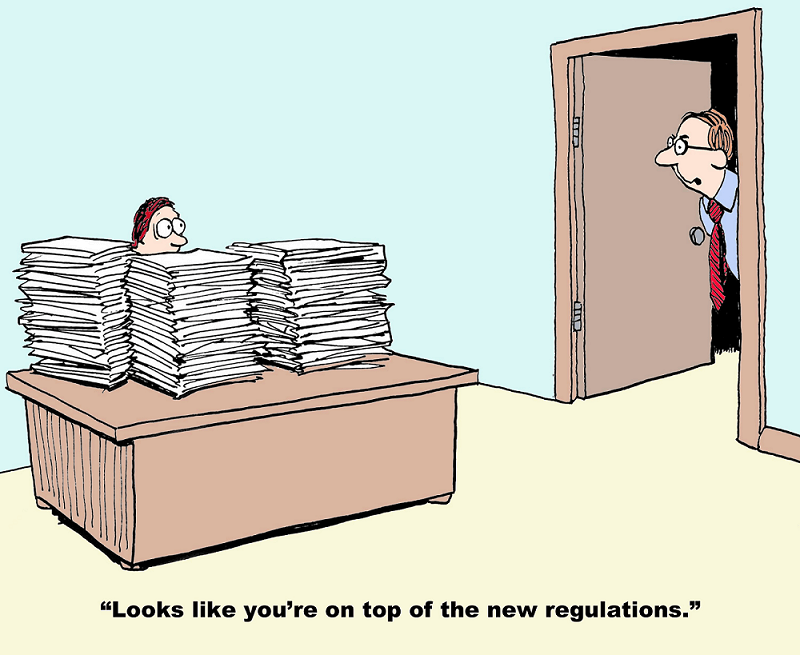
How to Cut the Costs of FDA Validation with ERP
All businesses want systems that perform as expected. But for life sciences companies, there is the additional burden of proving that the systems and processes within the company perform as expected. That’s because the U.S. Food and Drug Administration (FDA) regulates certain processes for public safety reasons. So life sciences firms are legally required to validate their systems.
Validation sounds complex, but really it is a simple concept: Does the system perform as expected? With validation, a life sciences business will document and prove that the required processes actually work as intended.
“The very definition of software validation is that there’s documented evidence the system is installed and is set up as intended,” explains Archie O’Leary, vice president of sales for one of the leading life sciences validation firms, Arbour Group. “In a regulated industry, the requirement is that you prove it.”
Whereas a non-regulated business will test and document processes internally, a life sciences firm also must have these processes reviewed by a third-party auditor for FDA compliance.
The Validation Process
After a life sciences business sets up its enterprise resource planning solution (ERP), validation is the process of proving it is configured correctly to meet regulatory needs.
The manufacture of a particular pharmaceutical drug has an exact formula that must be followed, for instance. So validation checks that the right formula is listed in the ERP system. The drug formula requires that certain materials are purchased from a list of verified vendors, so validation checks that the system handles this correctly and does not allow the purchase of materials from non-approved vendors.
This drug must be made in a specific way to meet FDA guidelines, too, and produced at facilities that have been verified. So validation checks that the system requires this drug be made only at the specified centers. The output itself must be tracked and traceable in case defects are discovered and a recall is necessary, as well. So the ERP system’s process for track and trace is checked. And there are many more validation tests.
“We go in and test that things actually work as specified,” says O’Leary.
Here’s the exhaustive guide from the FDA around 21 CFR Part 11, one of the cornerstones of FDA regulations around what must be validated.
Cutting Validation Cost with Pre-Packaged Industry Solutions
The cost and time for systems validation largely depends on correct setup. When an ERP is set up properly to meet all regulatory requirements, a validation audit can be as simple as having the third-party auditor run through the documentation and seeing that everything is in order.
When systems are not correctly configured, however, processes will have to be adjusted and then testing will take place again until it is correct. The lion’s share of validation costs come from the time it takes getting the set up correctly, and from retesting if required.
This is where pre-packaged industry solutions can significantly help with validation costs. With a pre-packaged ERP solution for life sciences, the system comes pre-configured for FDA process requirements. So instead of having to configure the system to the exact specifications necessary for validation, the system meets those needs by default.
The life sciences business still must get validation even with a pre-packaged system, but the time it takes to set it up correctly is reduced, and the risk of validation failure is all but eliminated.
“I think prepackaged is the way to go,” says O’Leary at Arbour Group. “As any IT project manager would tell you, What are my risk and how do I reduce them? Well, prepackaged is certainly a way to reduce risks.”
Many third-party auditors also have experience with pre-packaged industry solutions such those we make for the life sciences industry, which further cuts cost by reducing validation time.
“We have pre-configured validation solutions for systems like SAP ERP solutions,” says O’Leary. “We’ve done enough of them that we have a test-script library that represents the more prevalent functions in the manufacturing process for a life sciences company.”
Custom systems can be validated, of course. But that takes more time from an auditor.
“If we haven't seen it before, do we really care? No. But it's going to be expensive,” he says.
So prepackaged ERP not only cuts implementation time and delivers systems that businesses can use out of the box, they also save significant time and money for life science firms during the validation process.
Pre-Packaged Industry Solutions Help Other Regulated Industries, Too
FDA validation is not the only regulatory framework that businesses might face. In addition to FDA 21 CFR, there are other regulatory frameworks that business might have to comply with. Some of them include DCAA, an audit of accounting practices and accounting of government contractors, including prime contractors and subcontractors; SOC 1 and 2, which audits financial controls; and ITAR Compliance, a regulation designed to protect defense-related sensitive items, patents, and data to help safeguard the national security of the US.
With each of these regulations, a business must correctly configure their ERP system to meet the requirements, then have their system audited. As with FDA compliance, these compliance burdens can be significantly reduced with pre-packaged ERP solutions that understand these regulations and come pre-configured to meet regulatory requirements.
Learn more about how prepackaged ERP can help!
To learn more about how we can help your life sciences business, check out our validation services or contact one of our experienced ERP consultants at (801) 642-0123 or by writing us at info@nbs-us.com.

